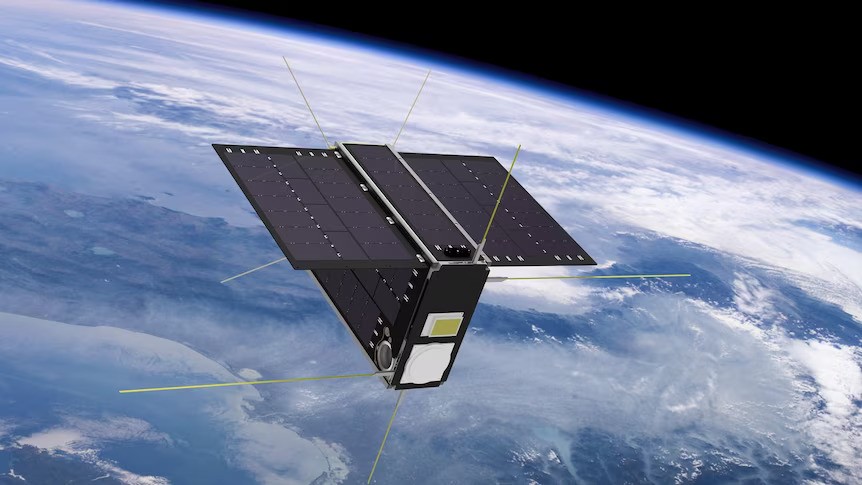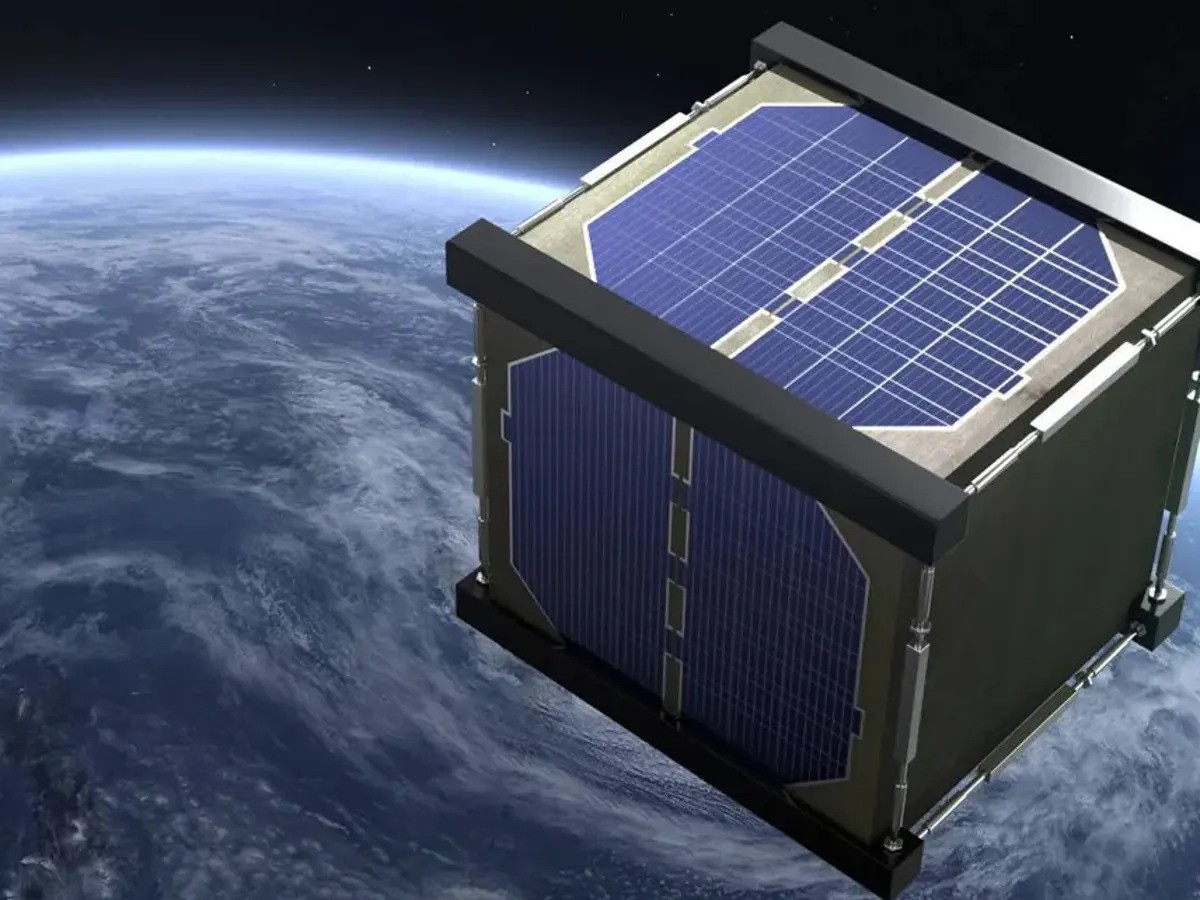Wooden Japanese Satellite Set To Launch This Summer To Tackle Space Pollution
Wooden Japanese satellite set to launch this summer to tackle space pollution. Japanese researchers have opted for wood over aluminum in their latest satellite blueprint slated for launch this upcoming summer.
Author:Karan EmeryReviewer:Daniel JamesFeb 20, 202485.4K Shares1.2M Views

Wooden Japanese satellite set to launch this summer to tackle space pollution. Japanese researchers have opted for wood over aluminum in their latest satellite blueprint slated for launch this upcoming summer. Dubbed Lignosat, the satellite will use Magnolia wood and is set to measure roughly the size of a mug.
While it may not sound like a concept from a sci-fi movie, utilizing wood could potentially aid the space industry in reducing harmful pollution. If successful, this microsatellite venture could pave the way for researchers to explore more environmentally friendly construction materials.
Lignosat will essentially be a compact wooden enclosure adorned with solar panels externally and electronic components internally. Its launch is slated to occur either aboard an Orbital Sciences Cygnus supply craft to the ISS or a similar mission aboard a SpaceX Dragon later this year.
Once deployed into orbit, Lignosat is expected to operate for approximately six months before reentering the Earth's atmosphere to burn up. The research team intends to conduct various experiments onboard to evaluate how effectively wood withstands the harsh space environment.
Satellites in low-Earth orbit endure temperatures ranging from minus 85°F (minus 65°C) to +257°F (125°C), depending on altitude and solar exposure. There's concern that the wooden panels within the satellite may distort or fracture due to temperature fluctuations.
Initial research indicated that wood, when subjected to space-like conditions in the laboratory, exhibited no noticeable loss in mass, decay, or damage. Buoyed by these findings, the researchers dispatched various wood samples to the International Space Station, where they remained in space for nearly a year. Once returned, the wood demonstrated minimal signs of decay, even after enduring extreme temperatures for double the anticipated operational duration of the satellite.
Koji Murata, the project lead, credited this phenomenon to the absence of oxygen or living organisms in space, which could otherwise facilitate the decomposition of wood.
"Wood's ability to withstand these conditions astounded us," Mr. Murata told the Observer.
Following the analysis of the ISS experiments, the researchers opted to construct the ultimate satellite using Magnolia wood. Compared to other woods evaluated, like the Japanese Cherry tree, Magnolia emerged as the optimal choice for satellite construction. In a statement, Kyoto University emphasized Magnolia's "exceptional workability, dimensional stability, and overall strength."
“„One of the missions of the satellite is to measure the deformation of the wooden structure in space. Wood is durable and stable in one direction but may be prone to dimensional changes and cracking in the other direction.- Koji Murata
Surprisingly, beyond its expected strength, wood presents some remarkable advantages over metals. Unlike metals, wood doesn't obstruct electromagnetic radiation, including the vital radio waves used for satellite communication.
This means wooden satellites can house all their antenna and radio equipment internally, streamlining their design and enhancing their resilience. Yet, the aspect that intrigues scientists the most is wood's eco-friendly nature.
As of September last year, there were an estimated 10,590 satellites orbiting Earth, with roughly 8,800 still operational. This growing accumulation of space debris is poised to escalate in the years ahead, with projections indicating an additional 2,500 satellite launches annually until 2031.
All in all, this amounts to roughly 11,000 tons of space debris zooming around above us. Moreover, another concern arises when these satellites deorbit.
According to Takao Doi, a Japanese astronaut and engineer from Kyoto University involved in the project, "All the satellites which re-enter the Earth's atmosphere burn and create tiny alumina particles, which will float in the upper atmosphere for many years. Eventually, it will affect the environment of the Earth," Mr Doi told the BBC.
Studies conducted at the University of British Columbia reveal that when satellites burn up, the aluminum residue they leave behind poses significant harm to the ozone layer. The ozone layer serves as a shield of gas enveloping the Earth, shielding it from harmful solar radiation and regulating the amount of sunlight reaching the surface.
To mitigate further damage to this crucial protective barrier, engineers are optimistic that wooden satellites will offer a sustainable solution. Instead of emitting harmful particles, wooden satellites like Lignosat simply disintegrate into biodegradable ash, leaving no lasting impact.

Karan Emery
Author
Karan Emery, an accomplished researcher and leader in health sciences, biotechnology, and pharmaceuticals, brings over two decades of experience to the table. Holding a Ph.D. in Pharmaceutical Sciences from Stanford University, Karan's credentials underscore her authority in the field.
With a track record of groundbreaking research and numerous peer-reviewed publications in prestigious journals, Karan's expertise is widely recognized in the scientific community.
Her writing style is characterized by its clarity and meticulous attention to detail, making complex scientific concepts accessible to a broad audience. Apart from her professional endeavors, Karan enjoys cooking, learning about different cultures and languages, watching documentaries, and visiting historical landmarks.
Committed to advancing knowledge and improving health outcomes, Karan Emery continues to make significant contributions to the fields of health, biotechnology, and pharmaceuticals.

Daniel James
Reviewer
Daniel James is a distinguished gerontologist, author, and professional coach known for his expertise in health and aging.
With degrees from Georgia Tech and UCLA, including a diploma in gerontology from the University of Boston, Daniel brings over 15 years of experience to his work.
His credentials also include a Professional Coaching Certification, enhancing his credibility in personal development and well-being.
In his free time, Daniel is an avid runner and tennis player, passionate about fitness, wellness, and staying active.
His commitment to improving lives through health education and coaching reflects his passion and dedication in both professional and personal endeavors.
Latest Articles
Popular Articles
